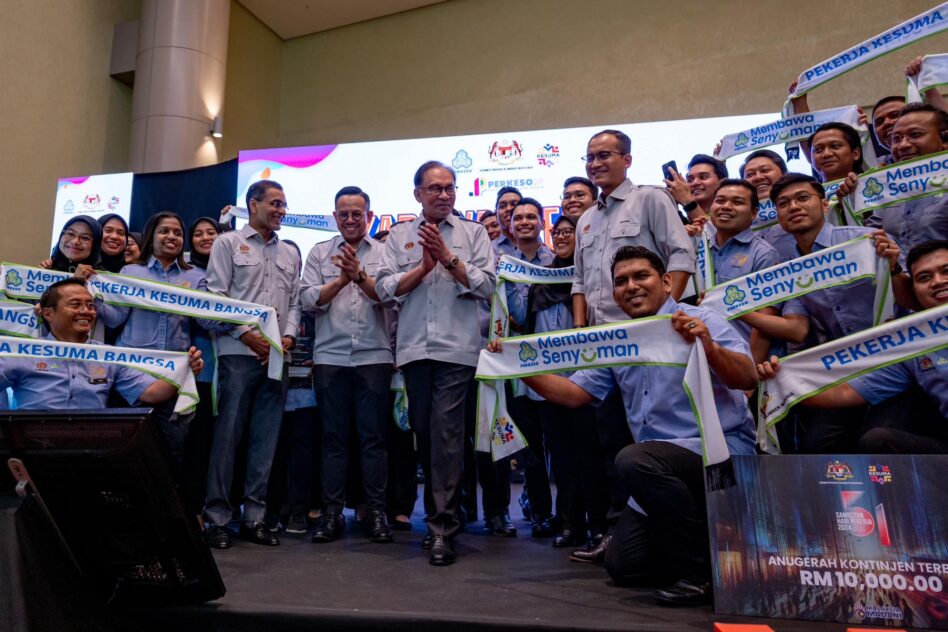By Farhan Kamarulzaman
THE tourism sector will eventually once again feel the crippling impact of survival during the crisis with another round of movement control order (MCO) to curb the alarming COVID-19 spread that comes with interstate travel prohibition.
As the Government believes interstate travel was one of the key triggers of the surging third wave of COVID-19 infection, the Government-introduced MCO 2.0 would undoubtedly leave the tourism industry in a precarious situation. It will also be hard for them to recover their performance this year after suffering lousy performance last year.
Not just that, most tourism industry players have hoped this year will be “something” for them to be back in action, but it seems unlikely as the country is still actively coping with the COVID-19 pandemic. This will require them to be in a silent mode for a while to make room for our public health to recover.
However, the tourism industry also has considered various measures to deal with the COVID-19 impact. One of the significant efforts that catch people’s attention is the recent excellent move suggested by most budget hotels.
This is related to Emmy Suraya Hussein, president of the Malaysian Budget Hotel Association, who urged the Government to consider converting 2,300 budget hotels into low-risk quarantine and treatment centres to allow more efficient surveillance of COVID-19 patients.
This move would also help the hotel operators to operate normally during this challenging time, although they must move away from the main goals of budget hotels themselves in promoting domestic tourism.
This is more of a situation that forces them to accept this vital step as a secure way to survive during the crisis because they cannot function as usual during MCO 2.0 due to the restrictions, primarily the interstate travel ban.
The tourism industry has also previously experienced a decrease in revenue of 80% due to the domestic tourism industry’s downturn and the substantial decline in foreign investors, which will be further aggravated due to MCO’s re-implementation.
Thus, the Government should possibly consider that idea to ensure that they will be spared from business closures during the crisis. It may also be something that they can contribute to the nation.
Furthermore, it is hoped the tourism industry will receive sufficient Government aid to help them survive. The Government should also ensure that wage subsidies and other significant measures under the PERMAI stimulus package are properly and promptly allocated to the tourism industry.
Although Prime Minister Tan Sri Muhyiddin Yassin has announced that the Government will give a one-off financial assistance of RM500 to 14,000 tourist guides in the country, they probably need more support to survive during the crisis since they had been grappling with bread-and-butter issues since March last year.
It is primarily because of the borders closed to international travellers, where there is nothing that our country could do to address the issue, as our current focus is on the public health recovery.
To further assist the tourist guides in withstanding the crisis, it is hoped that the Government would be able to increase the quantum of their financial assistance.
The Malaysian Tourist Guides Council president Jimmy Leong also added that the border would not open any time soon and tourist guides would still struggle in the foreseeable future.
Perhaps these tourist guides should be retrained in the basics of keeping an eye on people who are quarantined by ensuring these people follow the standard operating procedures (SOPs) pertaining to quarantine, and attending to their non-medical needs while being quarantined.
The tourist guides could then be deployed to the budget hotel turned quarantine centres once they have completed their training in lieu of a daily allowance.
In exploring this idea, it is very important these “retrained” tourist guides themselves should be trained with a strict SOP adherence as per the healthcare workers’ level to avoid them from becoming the agents of cluster spread.
The point is the tourism industry should not merely give up in the face of such MCO obstacles. They must remain steadfast in various credible ways to survive the crisis while waiting for various beneficial measures and initiatives by the Government to help the industry.
For instance, Kedah Tourism simply intensifies tourism promotion efforts, especially on social media, although the state is under the MCO. This could be the burning spirit in the tourism industry to endure during the crisis, even if they probably have a little to offer during our country’s active fight against COVID-19.
MCO 2.0 should not be treated as something that can break their spirit to recover as soon as possible. In fact, this should be the right time for the tourism industry to have a great plan on how to improve domestic tourism and save the sector sooner after the restrictions are lifted.
Apart from that, Kedah Tourism has also analysed the tourism data and found that the number of domestic tourists to 12 districts in the state, especially Baling and Yan, increases tremendously when inter-district travel is permitted.
One important point to stress is even after the inter-district travel is permitted, the tourism industry shouldn’t just aim for domestic tourist arrival per se but also to continue hammering in a tasteful way to these domestic tourists to continue observing the SOPs while enjoying their staycation. By doing this, the lesson that the virus is here to stay and spread ad infinitum once we let our guard down will be disseminated.
This is precisely what the nature of not giving up to survive, even during this ongoing crisis, entails. Plus, their actions in assessing what needs to be done to boost the state tourism industry’s performance are also what other states need to do for the sake of resilience this year.
Another example is through digitalisation, in which Tourism Malaysia has launched an initiative through a webinar, namely “Book Now Travel Later, Malaysia Awaits You”, to keep the tourism industry alive this year. The webinar also discusses promoting culture, people, natural attractions of Malaysia and the exciting new travel packages.
After all, the Government should actively provide sustainable assistance to help the tourism industry thrive. Simultaneously, the tourism industry players themselves should encouragingly have faith to survive the crisis through comprehensive and useful plans and initiatives and encouraging promotions through digital employment like a webinar, for example. – Jan 27, 2021
Farhan Kamarulzaman is a Research Assistant at EMIR Research, an independent think tank focused on strategic policy recommendations based on rigorous research.
The views expressed are solely of the author and do not necessarily reflect those of Focus Malaysia.










